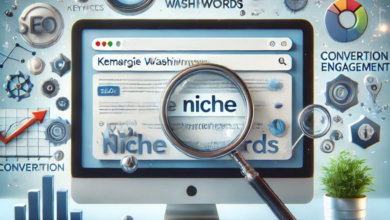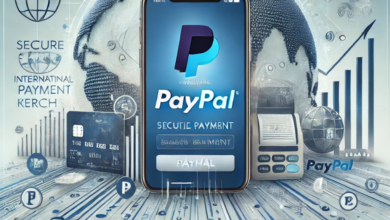How to Use Keykbb Valueword for Buying or Selling Cars

The process of buying or selling a car can feel daunting, especially when trying to determine the right price. This is where Keykbb Valueword, a reliable tool for car valuation, becomes indispensable. Whether you’re a first-time buyer, an experienced seller, or a professional in the automotive industry, understanding how to effectively use Keykbb Valueword can ensure you get a fair deal.
In this article, we’ll explore the ins and outs of Keykbb Valueword, its benefits, and how to use it step-by-step to buy or sell a car confidently.
What Is Keykbb Valueword?
Keykbb Valueword is an essential resource designed to provide accurate and up-to-date valuations for vehicles. It’s derived from data-driven insights, including market trends, regional pricing, and real-world transactions, to calculate a car’s worth. Whether you’re buying, selling, or trading in a vehicle, Keykbb Valueword serves as a trusted guide in determining its fair market value.
Benefits of Using Keykbb Valueword
1. Accurate Valuations
Keykbb Valueword uses comprehensive algorithms and extensive data sources, ensuring valuations are as precise as possible.
2. Transparency
By revealing how a vehicle’s price is calculated, Keykbb Valueword fosters trust between buyers and sellers.
3. Market Comparisons
Keykbb Valueword allows users to compare prices across regions, helping them spot the best deals.
4. Customizable Filters
It lets users input specific details like mileage, condition, and model year, ensuring tailored valuations for each vehicle.
How to Use Keykbb Valueword for Buying Cars
Step 1: Identify the Vehicle
Start by selecting the car model, make, and year you’re interested in. Be specific about features such as trim level, engine type, and optional packages.
Step 2: Input Custom Details
Enter additional details like the car’s mileage, current condition (excellent, good, or fair), and any special features or upgrades.
Step 3: Compare Price Ranges
Keykbb Valueword provides various price points:
- Private Party Value: Suggested price for a sale between individuals.
- Dealer Retail Value: The price you’d expect to pay at a dealership.
- Trade-In Value: The amount offered when trading in a car to a dealer.
Step 4: Assess the Market
Use Keykbb Valueword’s comparison tools to evaluate regional price trends and ensure the asking price aligns with the market.
Step 5: Negotiate Smartly
Armed with accurate pricing data, confidently negotiate the car’s price, avoiding overpayment. Reference Keykbb Valueword data to support your position.
How to Use Keykbb Valueword for Selling Cars
Step 1: Gather Vehicle Information
Before using Keykbb Valueword, collect all necessary details about your car, including its mileage, condition, and maintenance records.
Step 2: Determine Your Car’s Condition
Honesty is key when selecting your car’s condition. Categories typically include:
- Excellent: Like-new condition, no visible damage.
- Good: Some wear and tear but no major issues.
- Fair: Noticeable flaws or required repairs.
Step 3: Generate Your Car’s Value
Enter the details into Keykbb Valueword to receive its private party value, dealer trade-in value, and certified pre-owned value.
Step 4: Set a Competitive Price
Base your asking price on the tool’s suggested value, adjusting slightly for market demand or unique vehicle features.
Step 5: Prepare Your Car for Sale
Boost your car’s value by addressing minor repairs, detailing the interior, and taking professional photos.
Step 6: Negotiate Using Data
Share your Keykbb Valueword report with potential buyers to establish transparency and build trust.
Tips for Getting the Most Out of Keykbb Valueword
- Update Regularly: Values can fluctuate due to market changes, so refresh your valuation if the sale takes time.
- Consider Regional Variations: Prices vary by location; adjust your expectations based on local demand.
- Be Honest About Condition: Misrepresenting a car’s condition can lead to disputes and price renegotiations.
- Research Additional Factors: Don’t rely solely on Keykbb Valueword; review similar listings and market reports.
- Leverage Extra Features: Highlight unique features like advanced safety systems or fuel efficiency to justify higher prices.
Common Mistakes to Avoid When Using Keykbb Valueword
1. Ignoring Additional Costs
When buying, account for taxes, registration fees, and potential repairs beyond the initial price.
2. Overpricing Your Car
Sellers often overestimate their car’s value. Stick to Keykbb Valueword’s recommendations to avoid deterring buyers.
3. Failing to Negotiate
Even with a solid valuation, always negotiate. Use Keykbb Valueword data as a foundation, but be prepared for compromise.
4. Not Considering Timing
Prices can fluctuate seasonally. For example, SUVs may be more in demand during winter, while convertibles peak in summer.
5. Skipping Market Research
Supplement Keykbb Valueword data with research on local listings for a comprehensive understanding of current trends.
FAQs About Using Keykbb Valueword
1. What is Keykbb Valueword, and how does it work?
Keykbb Valueword is a car valuation tool that uses market data, transaction histories, and vehicle specifics to estimate a car’s worth.
2. Can I trust Keykbb Valueword for accurate pricing?
Yes, Keykbb Valueword is widely regarded as reliable, offering precise valuations based on real-world data.
3. How often should I update my car’s valuation?
It’s recommended to update the valuation every few weeks, as market conditions can change quickly.
4. What’s the difference between trade-in value and private party value?
Trade-in value is the price a dealer offers for your car, while private party value reflects the price you’d get in a sale to another individual.
5. Does Keykbb Valueword consider regional pricing differences?
Yes, it adjusts valuations based on location, ensuring relevance to your local market.
You May Also Read: https://techupmagazine.com/shemle-star-db/




